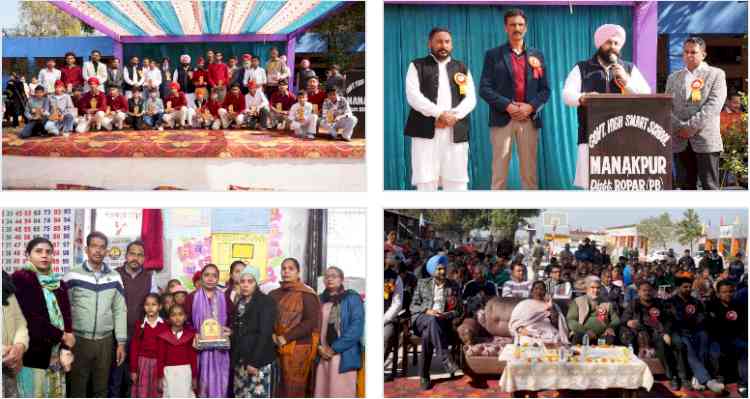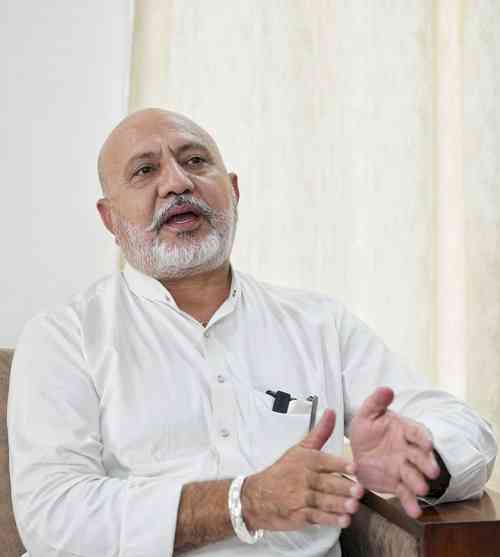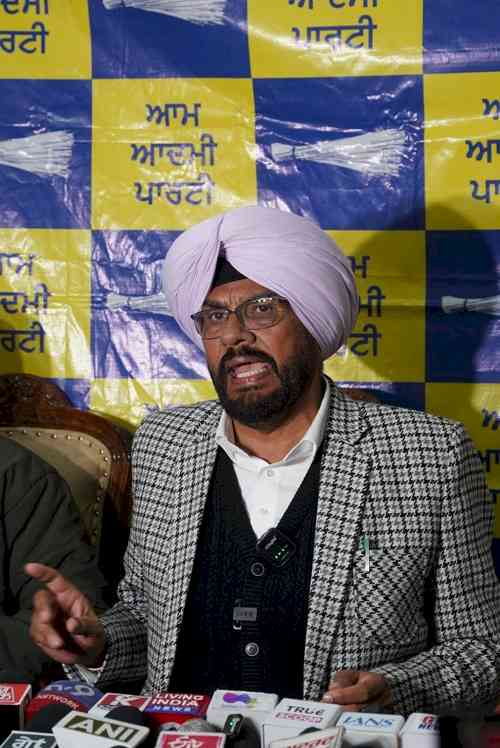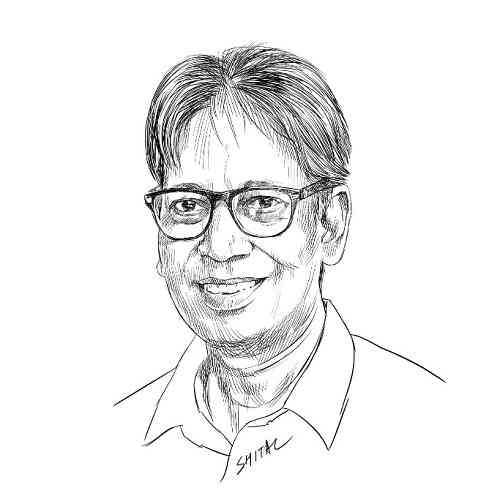Mann Government Brings Major Reforms to Mid-Day Meal in Punjab: Better Menu, Fruit, UKG Coverage, Proposed Breakfast, and Employment for 44,301 Women
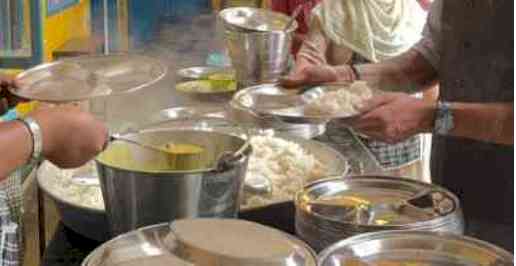
Chandigarh, November 5, 2025: Under the leadership of Chief Minister Bhagwant Mann, significant reforms have been introduced in the Mid-Day Meal Scheme (MDMS) in Punjab, aimed at boosting both nutritional outcomes and operational efficiency. In September 2023, the government extended the scheme's coverage to include approximately 1.95 lakh children enrolled in UKG (Upper Kindergarten) classes in government schools—children who were previously outside this crucial nutritional safety net. This expansion underscores the Mann government’s commitment that no child in Punjab's public education system should go hungry, recognizing that proper nutrition in early childhood is critical for cognitive development and learning ability. The move has been particularly vital for rural areas, where malnutrition and food insecurity remain persistent challenges, and where the mid-day meal is often the most nutritious food a child receives all day. This expansion also translates into additional employment for women cooks, further strengthening the scheme's dual impact as a nutritional intervention and a job creator for marginalized women.
The Mann government’s focus on nutritional quality has led to several innovative reforms that distinguish Punjab’s approach from other states. Starting in January 2024, the government introduced the provision of seasonal fruit once a week to students, initially starting with bananas and later incorporating locally grown options such as Kinnow and carrots. This initiative serves the dual purpose of improving the nutritional diversity of children’s diets while simultaneously supporting local farmers and the state’s agricultural economy. The emphasis on locally sourced, seasonal produce ensures freshness and affordability while building a sustainable supply chain that benefits rural communities. In November 2025, the government released a new weekly menu designed by nutrition experts, crafted to optimize the health benefits of the meals, include diverse food groups, and ensure children receive adequate protein, vitamins, and minerals essential for their growing bodies. These menu reforms reflect a scientific, evidence-based approach to child nutrition, moving beyond mere satiety to actively combat malnutrition and support healthy development.
Perhaps the most ambitious vision under the Mann government has been the proposal for a separate Chief Minister's Breakfast Scheme, inspired by Tamil Nadu's successful model. Chief Minister Bhagwant Mann has repeatedly voiced his resolve to implement this scheme, which would provide a nutritious morning meal to primary school children, complementing the existing mid-day meal. This proposal, which has been under Cabinet consideration, acknowledges that many children arrive at school on an empty stomach, affecting their concentration and learning ability during critical morning hours. If implemented, Punjab will join a select group of progressive states prioritizing comprehensive nutritional support for students throughout the entire school day. The initiative is also projected to generate additional employment opportunities for women, potentially expanding the workforce beyond the current 42,000 cooks. The breakfast scheme reflects the Mann government’s holistic understanding that educational outcomes are inextricably linked to nutritional security, and that investing in children's health today is investing in Punjab’s human capital for tomorrow.
For the 42,000 women employed as Mid-Day Meal cooks across Punjab, the scheme is more than a government job—it is often the primary source of their family's income and their passport to social dignity and economic independence. These women, primarily from economically disadvantaged communities, earn an honorarium of roughly ₹3,000 per month, or about ₹36,000 annually. While the amount may seem modest, for many widows and women from single-parent households in rural Punjab, it is the difference between economic stability and dependence/self-reliance. The scheme has become one of the largest providers of government employment for marginalized rural women in the state, offering not just an income but also social security, community standing, and a sense of purpose. Women like Harjeet Kaur speak with pride about their role, sharing how they have watched generations grow up, how former students return with gratitude, and how the entire village recognizes their contribution to the community's most precious resource—its children.
In the quiet corridors of a government primary school in rural Mansa, 58-year-old Harjeet Kaur arrives before dawn, her hands calloused by service but her eyes still holding the spark of purpose. For the last 27 years, she hasn't just been a cook—she has been the "School Mother" to hundreds of children who have passed through these walls. Some of those children are now teachers, government employees, and parents themselves, and they still seek her blessings when they visit the school, still recall the taste of the Rajma-Chawal she lovingly prepared during their hungry school days. Harjeet's story is not unique. Across Punjab, approximately 44,301 women like her are the backbone of one of India's most transformative social welfare schemes, quietly nurturing the futures of over 17 lakh children in nearly 19,700 government and government-aided schools. These women, many of whom are widows or from female-headed households, have found not only employment through the MDMS but also dignity, purpose, and an irreplaceable role in their communities—a program that the Bhagwant Mann-led Punjab Government is actively strengthening and expanding with renewed vigour.
The human stories behind the statistics are deeply poignant, revealing the profound social impact of this employment. In villages across Ludhiana, Bathinda, Sangrur, and Mansa, these women have become community pillars, their kitchens the heart of the school ecosystem. Many have served for 20 to 30 years, becoming fixtures in village life, their recipes and care becoming part of local folklore. Children affectionately call them "School Maa" or "Cook Aunty," and the bonds they form often last a lifetime. Former students recount how a cook's kindness during difficult times, an extra serving when they were especially hungry, or a word of encouragement became cherished memories. These women take immense pride in their work, often arriving hours before school starts to ensure everything is perfect, preparing each meal as if cooking for their own children. Their attachment to the students and the community sustains them despite the hardships, forging ties that transcend the transactional nature of employment. This emotional labour, though unmonetized in official figures, represents an invaluable social good that strengthens the community fabric and creates inter-generational continuity.
In Ludhiana alone, over 4,000 women work as MDM cooks, yet most lack insurance protection despite the daily risks of burns, smoke inhalation, and physical strain. The Mann government has acknowledged these gaps and formally requested the Central Government to increase the honorarium of the Cook-cum-Helpers, recognizing that their compensation has not kept pace with inflation or adequately reflected the value of their contribution. Ensuring better wages, timely payments, comprehensive insurance, and improved working conditions remains a critical agenda item to make this employment truly dignified and sustainable.
The confluence of job creation for marginalized women and nutritional security for children makes the Mid-Day Meal Scheme one of the most cost-effective and socially beneficial government programs in Punjab. Under the Mann government's patronage, the scheme has evolved from a basic welfare program into a sophisticated intervention that simultaneously addresses the multiple dimensions of poverty, gender inequality, and educational disadvantage. The 42,000 women employed represent 42,000 families with increased economic security, children with brighter futures, and communities with stronger social bonds. The 17 lakh children fed daily represent the next generation of Punjab’s workforce, whose cognitive development, health, and educational attainment are being actively supported by state policy. As the Mann government continues to refine and expand the program—with the improved menu, fruit provision, UKG coverage, and potentially the breakfast initiative—it is building a model that demonstrates how government can be a force for transformative social good when designed with both heart and vision. The women who arrive before dawn to lovingly prepare the food, and the children who eat those meals and dream of a better future, together embody the deep human impact of the policy. For Harjeet Kaur and the thousands like her, being a "School Mother" is not just employment—it is a calling, a contribution to nation-building, one meal, one generation at a time.



 City Air News
City Air News 
